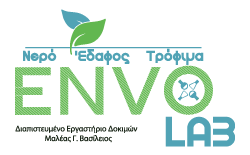ISO 9001: 2008 is an internationally recognized standard developed by the International Organization for Standardization (ISO) for quality management and can be applied to all categories of companies. , regardless of activity, product or service provided, as well as their type or size.
The ISO 9001: 2008 standard focuses on defining minimum business practices for the production and delivery of company products and services, through the implementation of an official “Quality Management System” or as it is commonly referred to as QMS.
An ISO 9001: 2008 QMS consists of certain procedures, documentation and other formal practices that control the internal operations of the company to ensure that the client’s requirements are consistently met.

ISO 9001 & ISO 22000
ISO 9001 CERTIFICATION
The main advantages of a Quality Management System are that through it:
- The organizational structure of the business is defined
- The responsibilities and duties of the staff are specified
- Internal procedures are standardized
- Error prevention mechanisms are installed and intervention mechanisms are specified
- The performance of the services / products is recorded
- There is a better selection of suppliers and subcontractors
- The needs for staff training are recognized
- Reduces operating costs
- Product design is improved
- The company is given the opportunity to “guarantee” its customers to keep its promises
The Benefits of a Certified Business on the Market are summarized below:
- Increased customer confidence
- Better market image as a business
- Coverage of any requirement by entities for mandatory certification of contractors
- Better communication with suppliers
- Ability to attract new customers and maintain existing ones
- Reduce customer complaints and dissatisfaction
- Greater competitiveness of the Company
Food Chain Management System for Food Chain Businesses
ISO 22000: 2005 is a standard developed by the International Organization for Standardization (ISO) and specifies the requirements that businesses involved in the food chain must meet to ensure the safety of their products from production to consumption.



